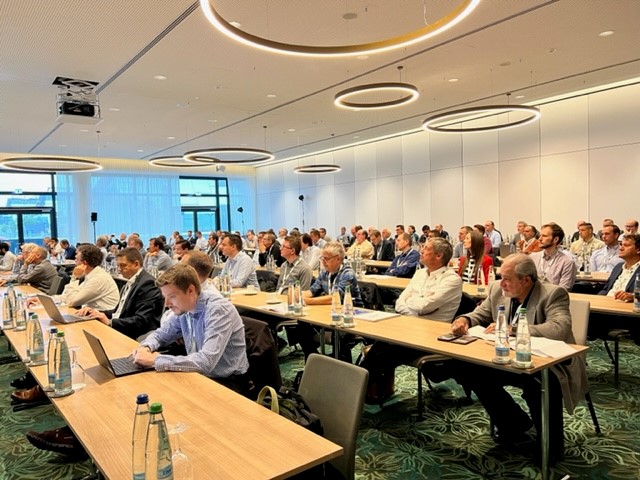
Avnu Alliance is a transformative force in the world of real-time networking. Established in 2009 by experts from diverse fields such as networking, IT, professional media, and automotive, our goal has been clear and consistent: to promote and facilitate the rapid, widespread, and open industry adoption of standards-based networking for time-sensitive, highly reliable applications.
Recognizing the constant evolution of Standard Ethernet, we closely followed the initiatives of the IEEE, which in 2012 created the Time Sensitive Networking (TSN) task group. This team built on the work of the Audio Video Bridging (AVB) task force, ushering in a new era of networking by launching the TSN standards. These standards significantly expanded the range, functionality, and application scope of Standard Ethernet. As the Industrial community gained interest in using Standard Ethernet to support highly reliable and precision-synchronized networking suitable for industrial control, Avnu extended its focus into the Industrial control market. We aim to support this progressive work and lay the groundwork required for industrial applications. As a natural next step, TSN capabilities have been extended from wired to wireless media supported by the latest 802.11 and cellular standards. Avnu also extended its scope to support interoperability across wired and wireless TSN solutions.
Today, Avnu is committed to delivering value to a variety of industries by providing access to the complete TSN toolbox across wired (Ethernet) and wireless (Wi-Fi and 5G) connectivity. Our members benefit from comprehensive access to Avnu test plans, open-source code, plugfests, test tools, and Certification programs. These tools are designed to accelerate innovation, streamline design iterations, and foster confidence among end users, leading to the development of interoperable systems for real-time networking.
We bring together diverse perspectives from the entire value chain–from IT infrastructure providers to silicon and component vendors, to end device manufacturers–across markets. Through collaboration, we create the present and future requirements for converged networks. Members collaborate to create the current and future requirements for converged networks, ensuring devices from many manufacturers and for diverse applications can coexist on a shared open network, serving the greater good of the industry.
Avnu Working Groups
Automotive Work Group
Work Group Chair: Vlad Lyalikov
Certification Work Group
Work Group Goals: To develop, govern, manage, and sustain the Avnu Alliance Certification Program. This includes developing and implementing plans, procedures, and certification environments, with roles and responsibilities for participants, to Certify Products, and ensure 100% conformance to the Avnu Certification Criteria.
Work Group Co-Chairs: Jeremy Rover and Daniel Zimmerman
ProAV/Milan Work Group
Work Group Goals:
– Drive the evolution of the Milan specification
– Specify and implement certification tests cases to ensure interoperability between Milan devices
– Provide opportunities for interoperability testing and debugging during plugfest events
Work Group Co-Chairs: Richard Bugg and Martin Zarzycki
Silicon Validation Task Group
Work Group Goals: Avnu’s TSN Silicon group works with many organizations, in multiple vertical markets, that define upper layer applications and protocols each with their own TSN requirements. The task group works to develop a certification program that enables a layered, modular approach to interoperability across the entire TSN ecosystem by ensuring TSN lower layer support for multiple upper layer applications and protocols.
Task Group Co-Chairs: Alon Regev and Pauline Chan
Switch Task Group
Task Group Goals: To look at existing test cases for reuse in developing a profile agnostic test suite of test cases and to address gaps that would enable capability through the use of a combination of the Avnu Express Test Suite and dedicated test equipment for Avnu to certify several switch product categories to include, but not limited to: wired ProAV, Automotive, and Industrial switches.
Task Group Chair: Richard Pearn
Wireless TSN Work Group
Work Group Goals:
– To develop MRDs identifying high priority use cases, TSN features, and deployment scenarios
– To develop test strategies and testbeds demonstrating TSN features over wireless
– To define and establish collaborations with relevant wireless industry groups/SDOs
Work Group Chair: Rick Candell
